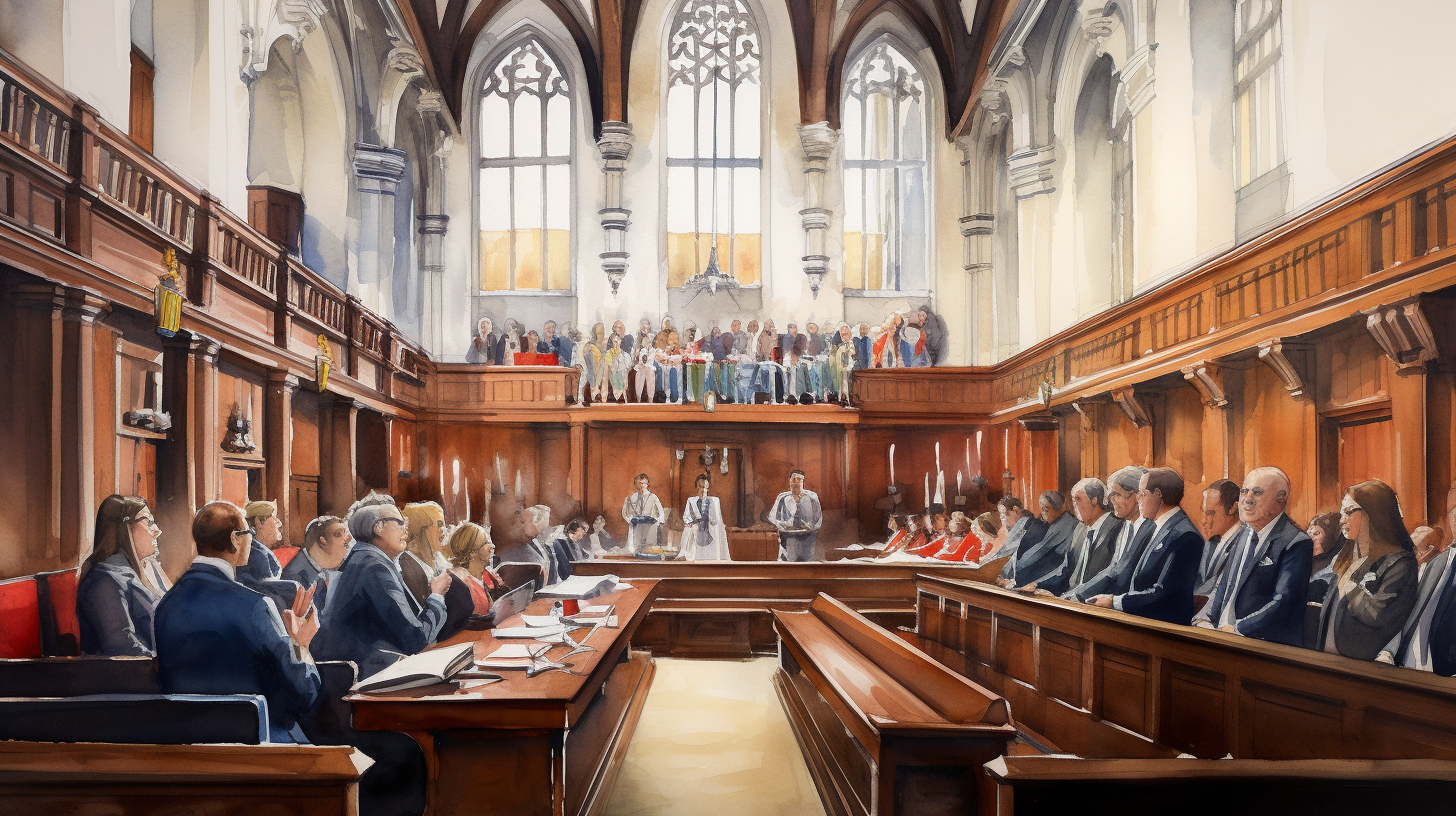What does dreaming about court mean?
Dreaming about court often signifies that you are facing important judgments in your waking life. A court represents authority, accountability, and the weighing of actions. When such a setting appears in a dream, it often reflects your inner evaluation—how you judge yourself or fear being judged by others.
Being present in a courtroom, whether as a defendant, plaintiff, witness, or spectator, highlights a sense of scrutiny. You might be grappling with feelings of guilt, justice, or fairness. The dream may be telling you that a situation in your waking life is under assessment—perhaps a decision is pending, or you expect to be held responsible for something.
Even if you are not involved personally, observing a trial might indicate anxiety about social evaluation. It could signal that you worry about how others perceive your actions or character. In this context, court dreams encourage you to consider your relationship with self‑judgement and external opinions.
Furthermore, dreams of court can also point to transformation. Trials can represent turning points, an opportunity to learn from past mistakes or to stand up for your beliefs. In this sense, the court becomes a crucible where your integrity, values, and identity are tested and refined.
Common scenarios involving court and their meaning
The specific scenario within a dream about court changes its meaning significantly. For example, dreaming that you are on trial suggests feelings of vulnerability or fear of being blamed. Perhaps you suspect someone will criticise your decisions or call you to account. If the verdict goes in your favour, it often brings relief and affirmation. This outcome suggests a resolution in real life—approval from yourself or others, or the conclusion of a worrying issue.
If the verdict is unfavourable, the dream might expose self‑doubt or a fear of rejection. It may also highlight unresolved issues, such as moral dilemmas or past missteps. This scenario invites introspection—what do you fear being found guilty of, and why?
Dreaming about defending someone in court often reflects a protective instinct. You may feel compelled to stand up for a loved one or champion a cause. This dream echoes empathy and loyalty, but also suggests a sense of responsibility weighing on you.
If you are the accuser in the dream, it might reveal anger or resentment you hold towards someone. The courtroom becomes a space where you summon the courage to voice what’s been troubling you.
Dreaming of scenes such as delivering testimony points to your need to speak your truth. It reflects the challenge of expressing yourself under pressure, and perhaps a fear of not being heard or validated.
Other scenarios can involve chaos—crowded galleries, aggressive objections, or technical delays. These may symbolise confusion, overwhelm, or feelings of being lost amidst life’s complexities. Your mind could be processing stress related to legal, social, or emotional entanglements.
Witnessing a judge’s ruling without participating can also convey that you feel powerless, merely observing events without control. It might be time to consider how much agency you give away in situations that matter to you.
What is the spiritual meaning?
From a spiritual viewpoint, dreaming about court often signifies a period of soul-level reckoning. The courtroom is not just a place of human justice—it becomes a symbol of cosmic or inner evaluation. Spiritually, such dreams may point to a need to align your actions with your deeper truth or moral compass.
When faced with trial imagery, the dream may be guiding you toward spiritual integrity and personal responsibility. You may be called to own your mistakes, seek forgiveness, or make amends. In this sense, the court becomes a sacred space of transformation.
If you find yourself advocating for justice or truth in the dream, your higher self may be nudging you toward honesty and authenticity in your life. Conversely, being judged unfavourably could represent karmic lessons or unresolved inner conflicts seeking resolution.
Trials can also reflect judgment from spiritual guides or the universe. They remind us that while compassion exists, so does accountability. These dreams encourage humility and encourage you to walk your path with grace, striving not only for external success but for integrity of the heart.
Moreover, courtroom dynamics may mirror your inner dialogue. Are you being unduly harsh on yourself? Are you extending grace or holding onto guilt? Spiritually, the dream can be prompting a balance between self-analysis and self-compassion.
Ultimately, dreaming of court spiritually reminds you to examine your conscience, uphold moral clarity, and embrace the lessons that come from facing your own truth.
The importance of recording your dreams
Recording your dreams enriches self‑understanding. Court dreams are often dense with emotion and symbolism, and without noting them, their messages fade quickly. Writing them down preserves vivid details—the roles you played, the atmosphere, the verdicts—and opens the door to reflection.
Reviewing your entries over time can reveal patterns: recurring anxiety, repeated trials, or familiar courtroom settings. These patterns highlight unresolved internal issues or boundary negotiations in your life.



